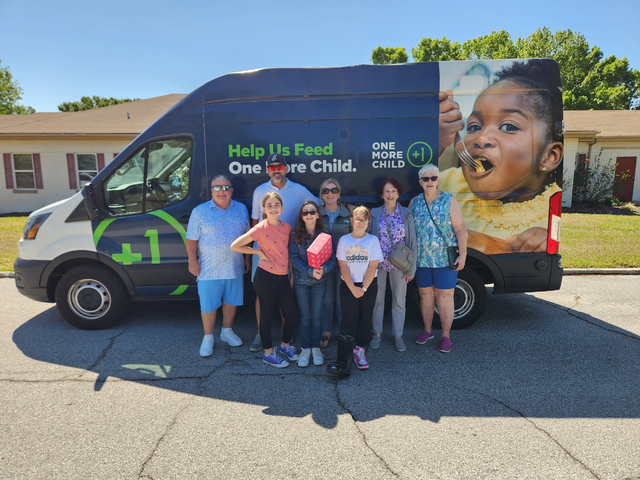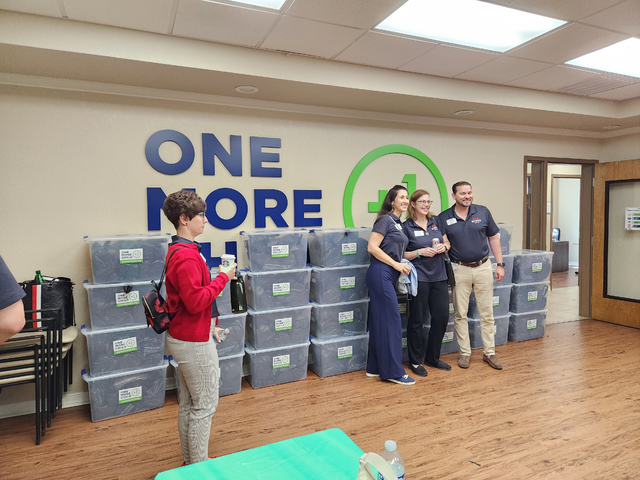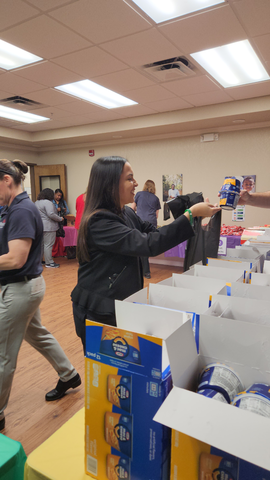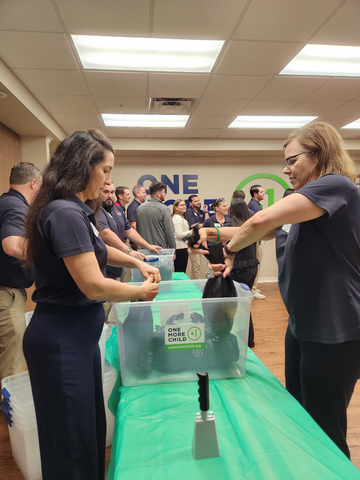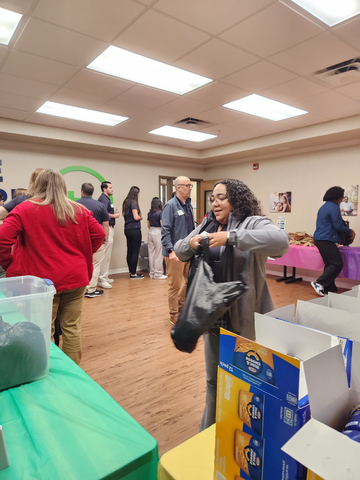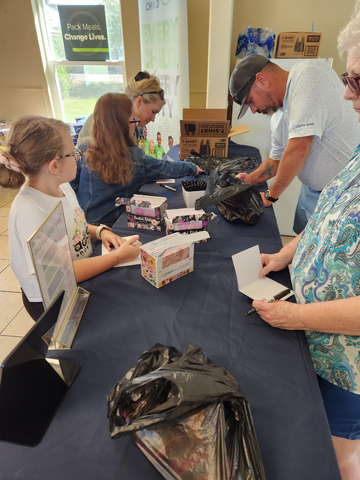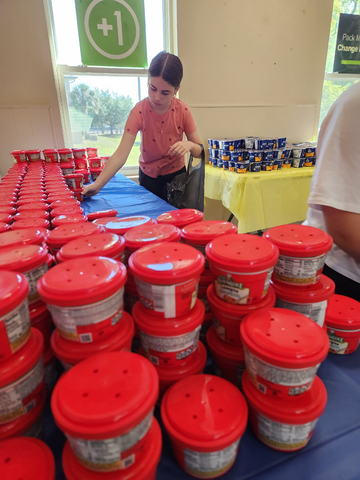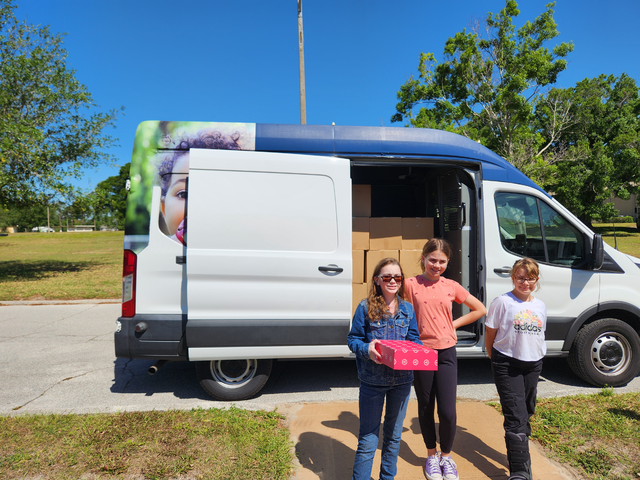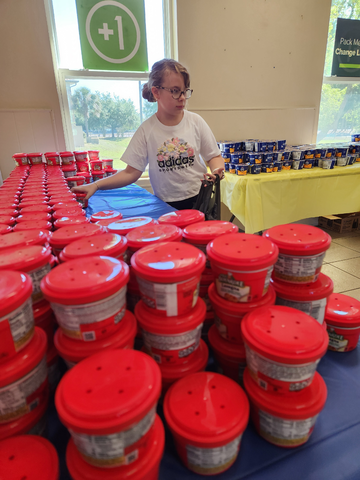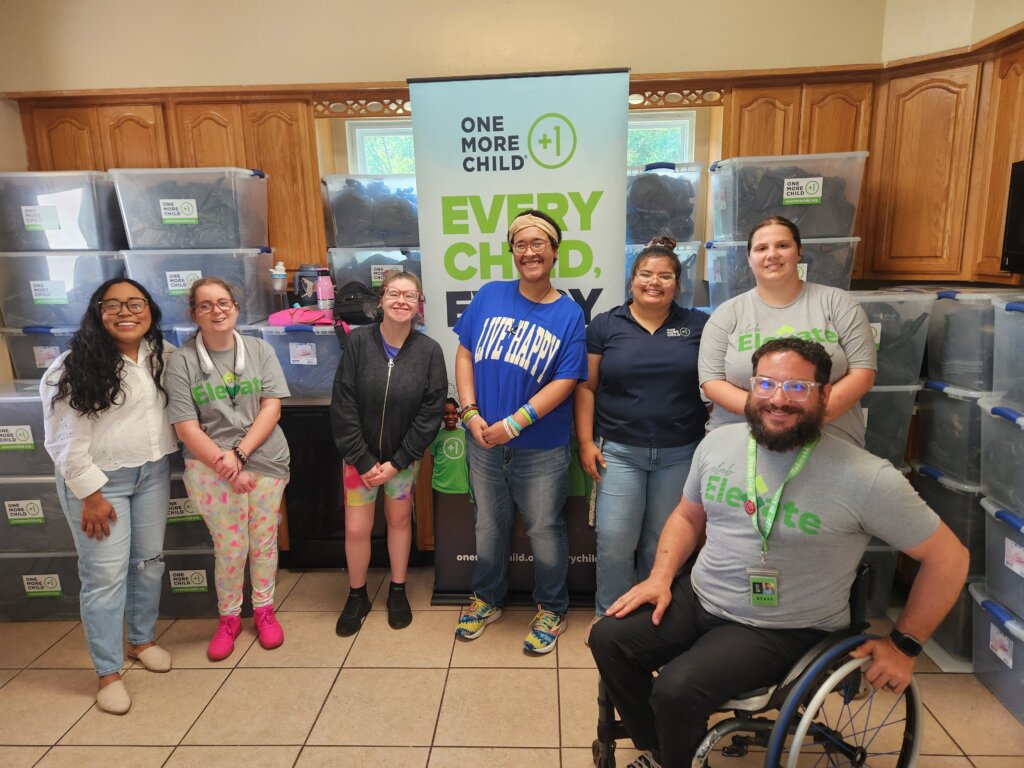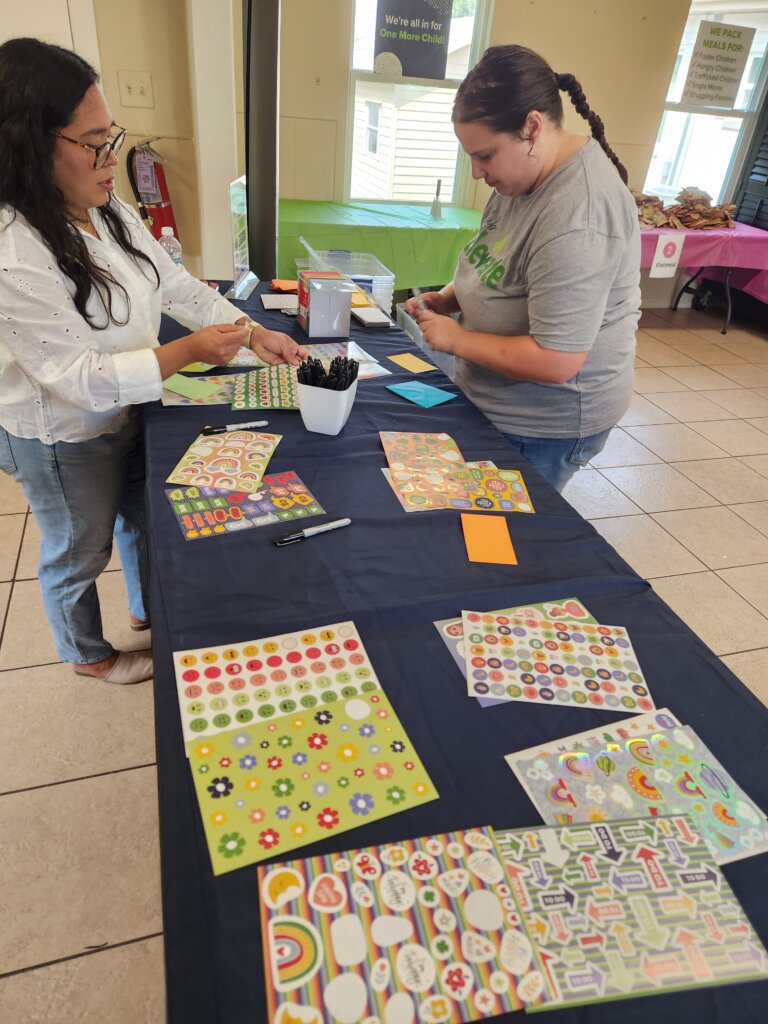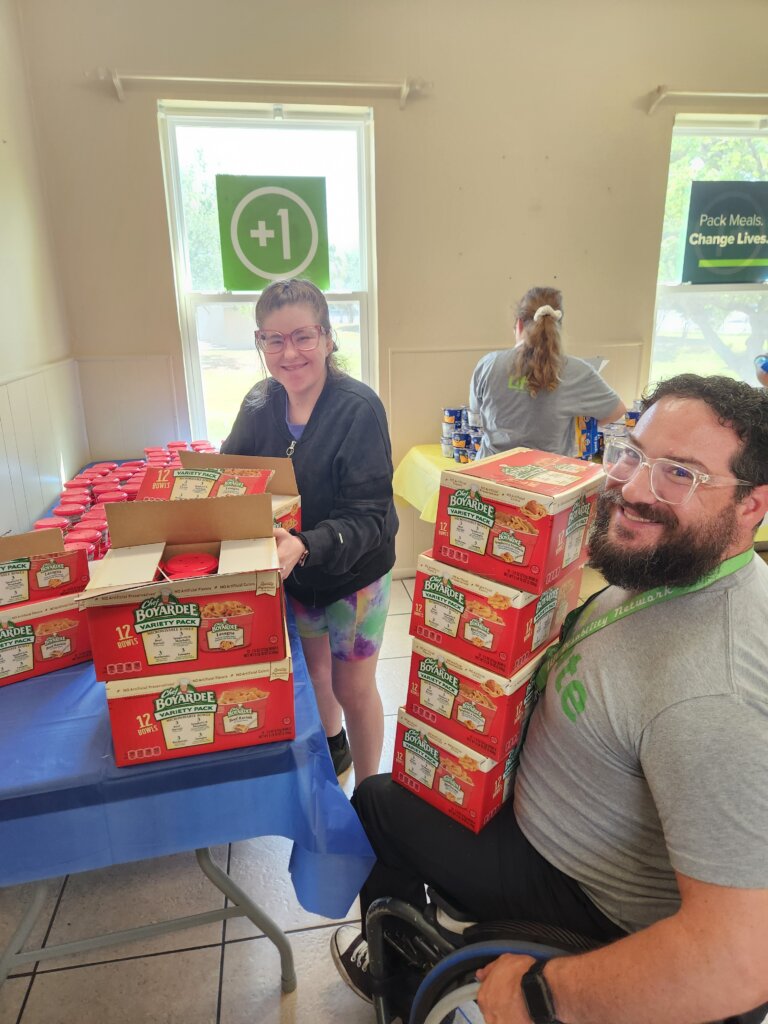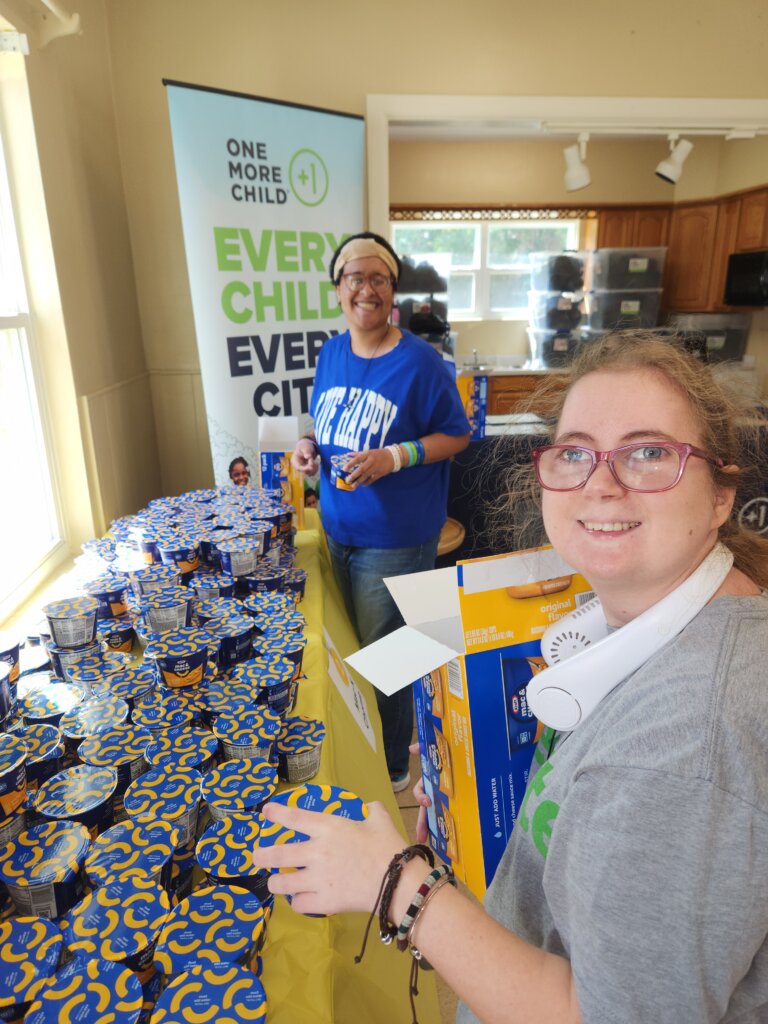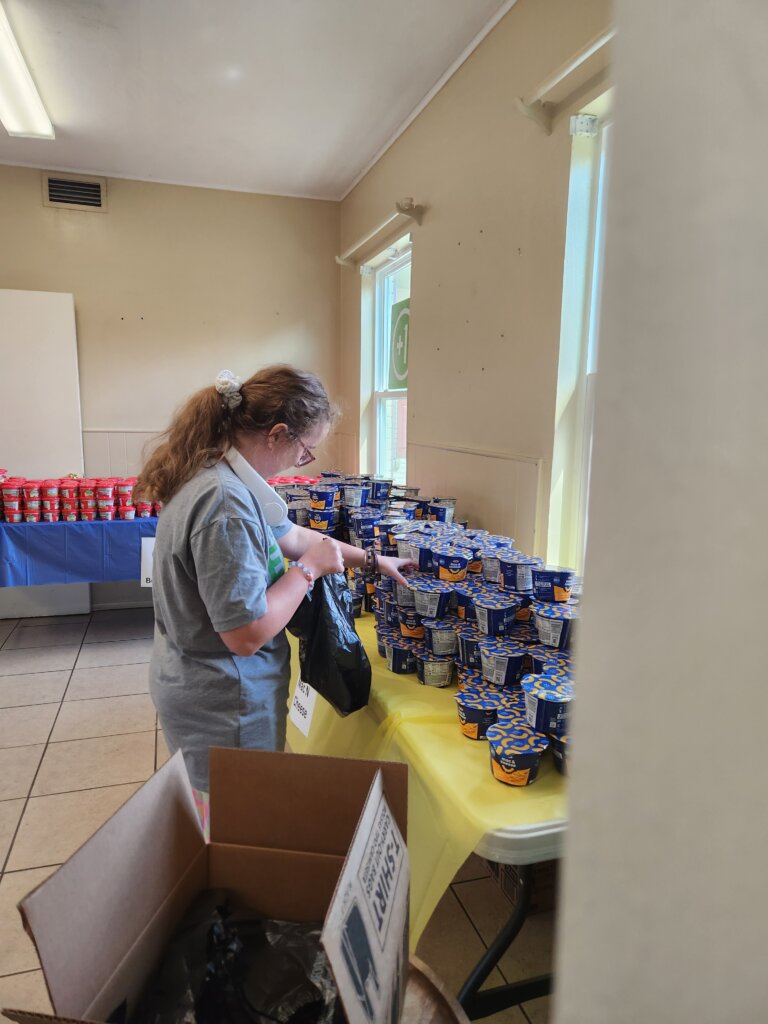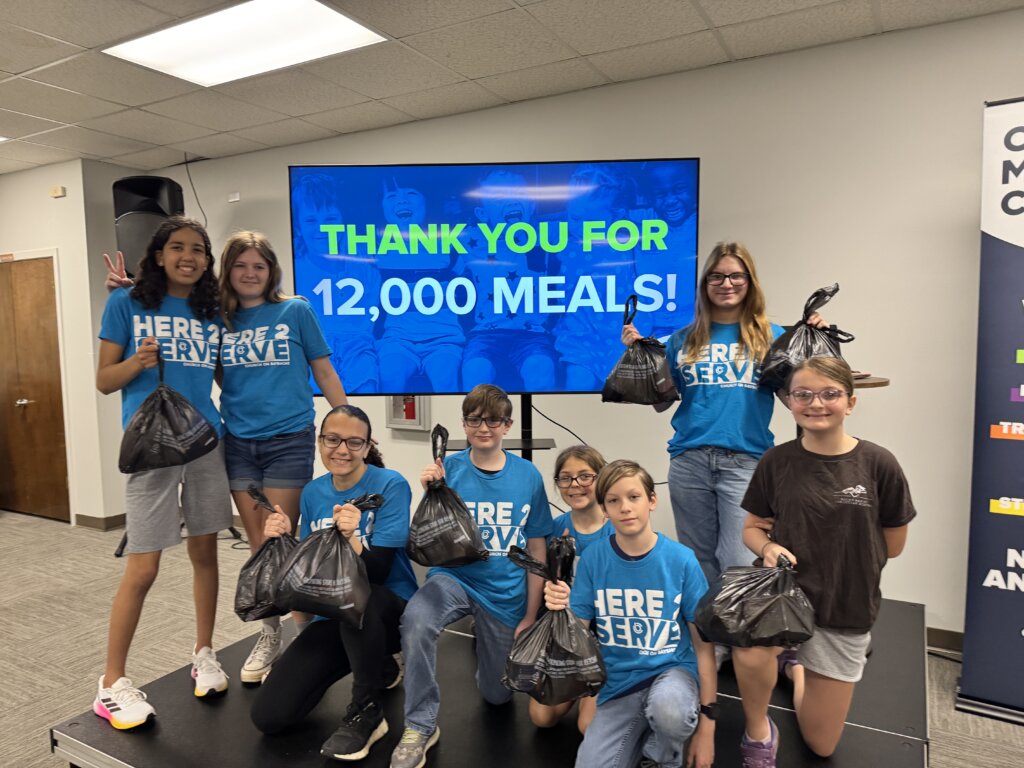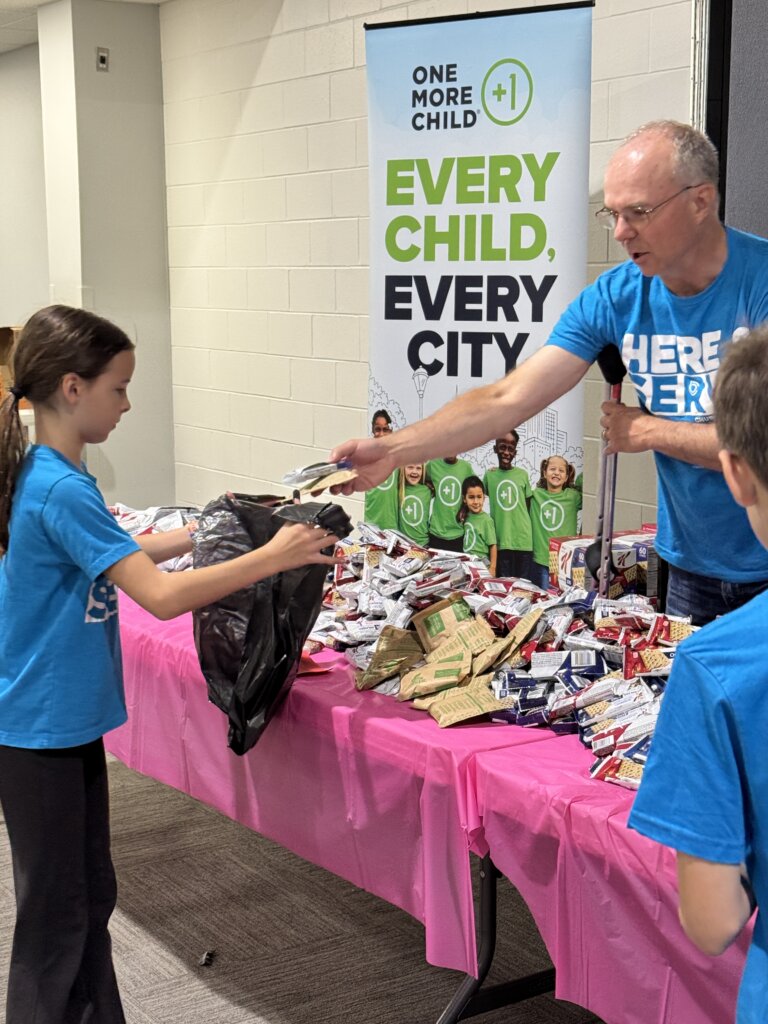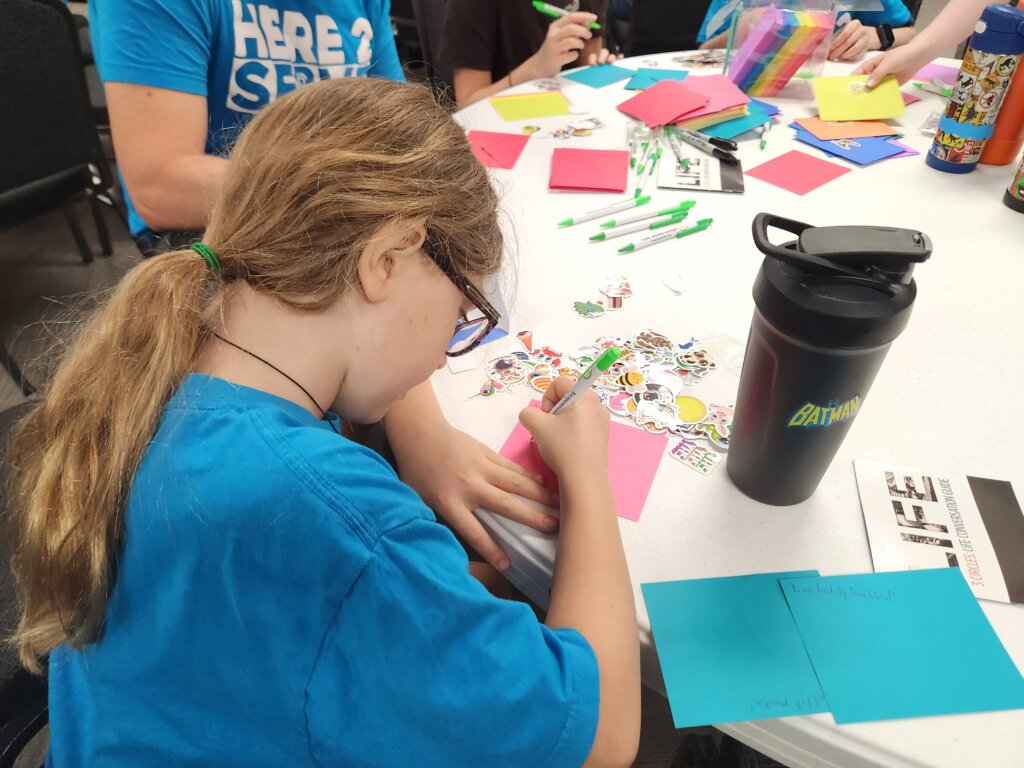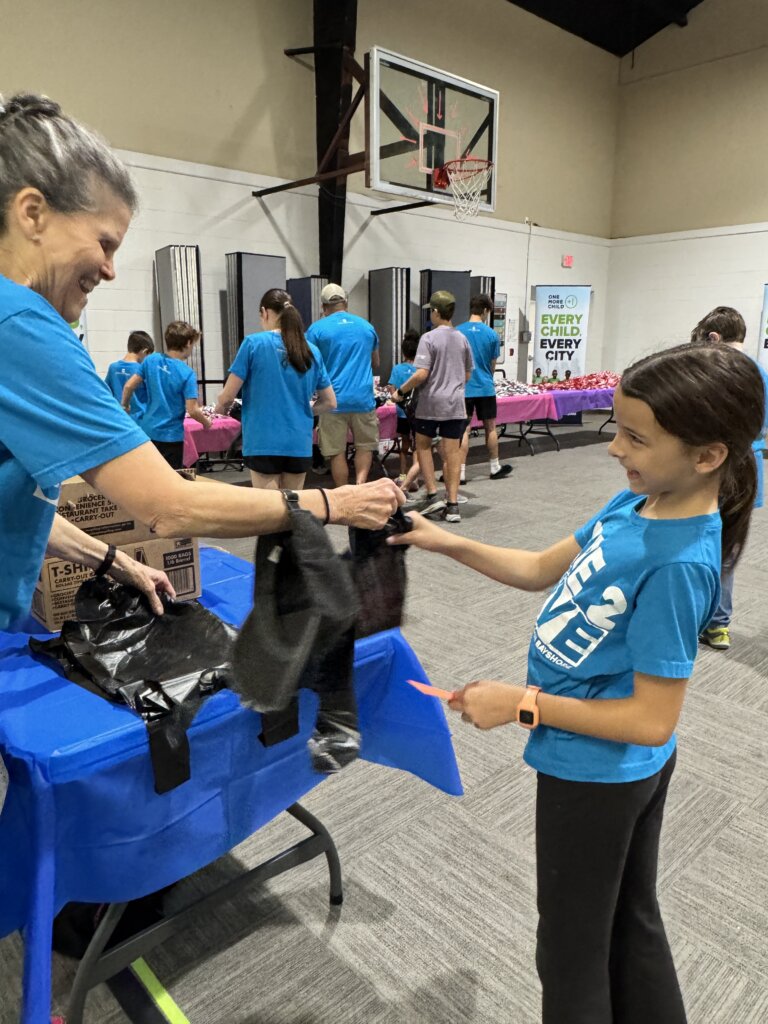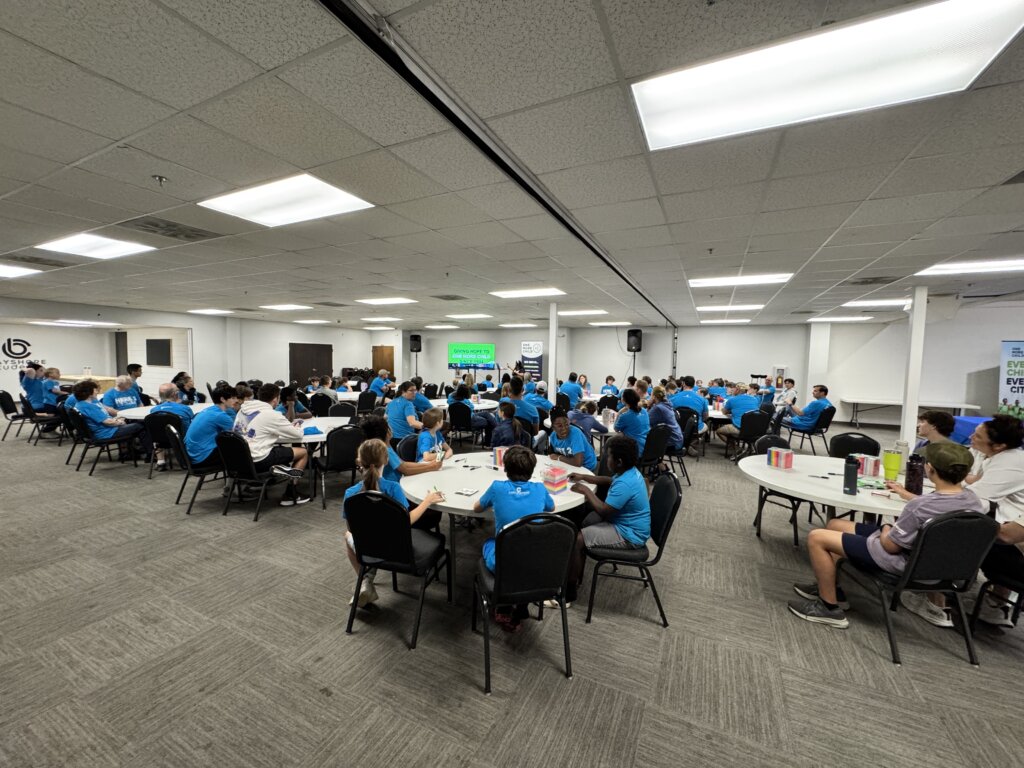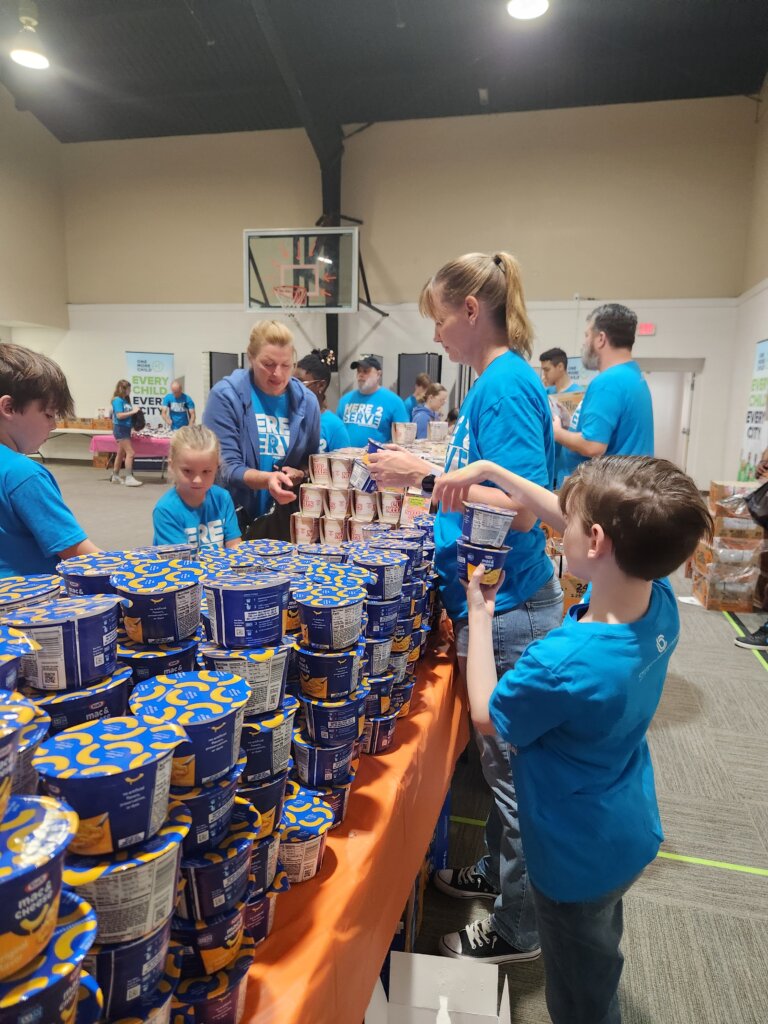Tackling Weekend Hunger Through Community Effort
For many students, Friday afternoon marks the beginning of weekend fun. But for children facing food insecurity, it can signal the start of two days without reliable meals.
One More Child’s Backpack Meals program addresses this critical need by providing children with nutritious food for weekends when school meals aren’t available. Through partnerships with churches, businesses, schools, and dedicated volunteers, the program delivers bags filled with enough food for breakfast, lunch, and dinner throughout the weekend.
Business Leaders Pack 2,100 Meals in Record Time
Recently, 32 members of Leadership Lakeland gathered together and transformed their collective effort into remarkable impact. These business professionals from across the city packed an impressive 2,100 meals in just 15 minutes – enough to support dozens of children for multiple weekends.
Established in 1983 by the Lakeland Chamber of Commerce, Leadership Lakeland identifies and enhances community leadership through hands-on engagement with local issues. Information shared during the Backpack Meals packing event by One More Child staff provided participants with direct insight into childhood food insecurity while creating an opportunity for an immediate, tangible impact on local students.
Age Is No Barrier to Making an Impact
Fifth-grader Maddie recently demonstrated that compassion knows no age limit. With determination and her mother’s guidance, she spearheaded an effort that resulted in 1,400 meals for children experiencing food insecurity.
Maddie raised enough funds to pack 200 bags of weekend meals! Then she gathered family and friends to come with her to One More Child’s campus, where they received a tour, learned about the challenges faced by food-insecure children, and then worked together to pack the meals they funded.
Each backpack contained seven meals, creating a total of 1,400 meals that would ensure 200 children had nutrition throughout the weekend. Maddie’s initiative serves as a powerful reminder that meaningful action can begin at any age.
Handwritten Notes and Hearts to Serve
One More Child welcomed volunteers with genuine hearts who wanted to serve by packing meals and writing handwritten notes. A group of individuals and staff from Lift Disability, an organization that supports individuals with special needs or disabilities, came together for a meaningful Backpack Meals packing event, during which they packed meals for children facing food insecurity.
In each meal bag, they included a handwritten note with a kind message or cheerful drawing as a simple reminder that someone was cheering them on. The Lift Disability team proved that service comes in many forms and that everyone has something valuable to give.
Generations Join Together to Pack Meals and Plant Seeds of Hope
In Niceville, Florida, young children, teenagers, and adults from First Baptist Church of Bayshore came together and packed 12,000 meals to be distributed to children in need from nine different schools and organizations. This multi-generational group of 80 volunteers packed these meals in just an hour and a half. Many adults and older volunteers sat peacefully, writing heartfelt messages and looking up Bible verses to include in the handwritten notes, while many of the children ran between stations, gathering materials and adding as many stickers as possible to each message.
Initiative Engagement Coordinator Desirae Meagher shared with the volunteers the impact of the Backpack Meals initiative. She shared a specific story of two brothers who used to save part of their lunch from school, so they would have food for later.
Now, because of faithful volunteers and supporters, these brothers no longer feel the need to withhold food during the week. Thanks to the Backpack Meal program, they know that every Friday, they’ll receive a weekend food bag that will meet their needs. Desirae also shared the power behind the handwritten notes tucked into each bag. Each note carries words of encouragement, a message of joy, and/or truth from God’s word. These notes plant seeds of God’s truth and love in the hearts of children.
At the end of the Backpack Meal packing event, the group prayed over the schools and organizations receiving the meals, blessing them as they go forth to meet needs and share encouragement.
How Backpack Meals Work
The Backpack Meals program operates through strategic partnerships with school boards and administrators. Every Friday during the school year, volunteers deliver bags of nutritious, easy-to-prepare food to participating schools. School administration and staff then discreetly pack these meals into backpacks belonging to food-insecure students, ensuring they have food for the weekend.
According to the U.S. Department of Agriculture (USDA), food security means “access by all people at all times to enough food for an active, healthy life.” The Backpack Meals program directly addresses gaps that lead to food insecurity by focusing on non-school hours when children might otherwise go hungry.
Each bag contains shelf-stable items selected to provide balanced nutrition and ease of preparation, as many recipients may not have consistent access to cooking facilities or adult supervision for meal preparation.
Getting Involved
What makes Backpack Meals noteworthy is its simplicity and efficiency. The program creates a direct connection between community members who want to help and children who need support. It demonstrates how straightforward solutions can address complex problems when implemented with care and collaboration.
Here are the various ways you can get involved to reach vulnerable children and struggling families in your community:
- Organize a packing event with your business, church, or community group.
- Fund a specific number of meals or backpacks.
- Volunteer for meal delivery to partner schools.
- Host a food drive focusing on items needed for the program.
Whether you give 15 minutes of your time or want to make a long-term commitment, there’s a meaningful place for you in this effort. The impact extends beyond nutrition – it gives children the security of knowing they won’t go hungry and the freedom to focus on learning, playing, and growing.

